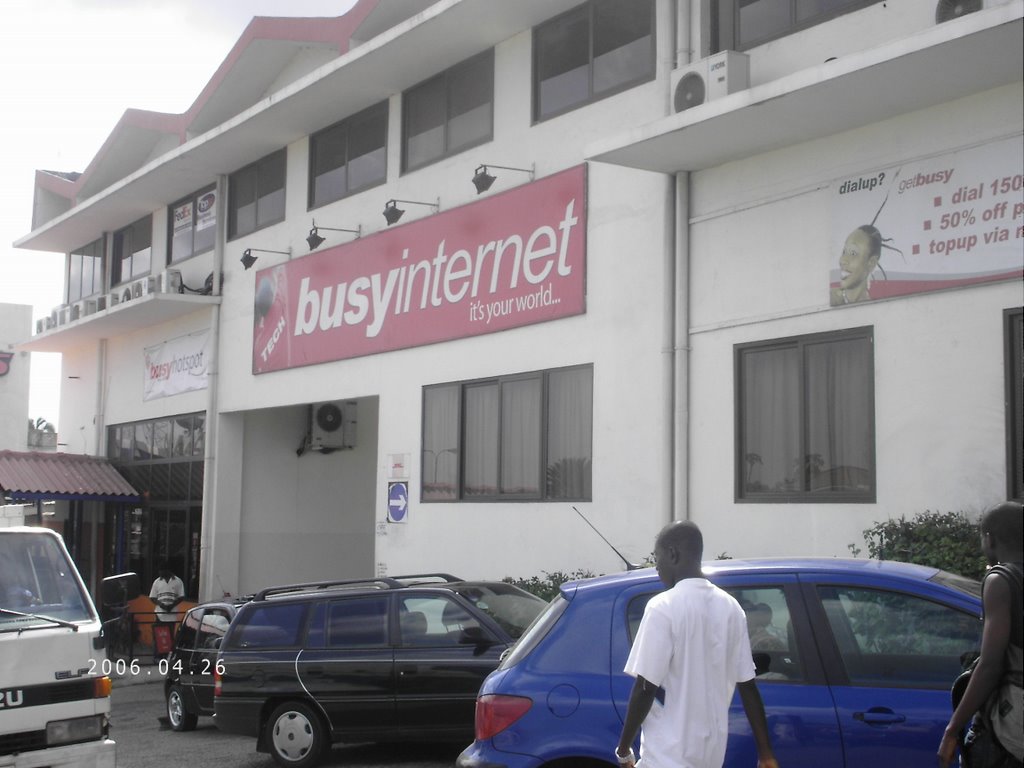In January of 2023, users of Surfline’s 4G service started getting text messages about the status of the service which had apparently gone offline. The text read that Surfline was having technical issues and that engineers were working to fix the problem.
By February, the problem had not been fixed. The company had kept sending texts that the problem was being worked on and users would be compensated.
By March, the problem persisted. Rumors started swirling that the company was having bigger problems internally.
In May, the National Communications Authority (NCA) officially put out a statement about Surfline: “The Authority has, in the past several months, continued engagement with Surfline, following a formal communication by the company to shut down its Radio Access Network due to some operational challenges.”
Surfline Ghana, which launched in 2012 and was the first 4G service provider in Ghana, was officially shutting down its operations and exiting Ghana.
Over the last few years, the telecoms field in Ghana has been taking several hits. Telecom and ISP companies operating in the country had been ceasing operations and leaving, making the space less competitive.
In the mobile space, the competition is getting decimated.
The leading mobile network operator (MNO) in Ghana is MTN, which has a market share of 67% in terms of voice subscriptions and 75% in terms of data subscriptions as of January 2023.
By The Numbers
According to the National Communications Authority (NCA), the total number of mobile voice subscriptions in Ghana reached 40 million as of January 2023. The total number of mobile data subscriptions was ~23 million.
The Mobile and Data Space
The mobile voice and data space is currently occupied by MTN, Vodafone, and AT (formally AirtelTigo).
The space used to be more competitive and had other operators including Glo and Expresso.
In 2014, the mobile network Expresso Ghana officially discontinued operations and sold to an unnamed buyer.

Glo migrated all its customers over to AirtelTigo, signaling that the company would be exiting the market in both the mobile voice and data space.
MTN Is The Dominant Force
The leading mobile network operator (MNO) in Ghana is MTN, which has a market share of 67% in terms of voice subscriptions and 75% in terms of data subscriptions as of January 2023.
Vodafone has 13% of the data subscriptions and 18% of voice subscriptions while AT currently has 14% of voice subscriptions and 11% of data subscriptions. (as of January 2023)
MTN is by far the dominant MNO in the country and this has led to some scrutiny, especially from the Ministry of Communications and the NCA.
In 2022, it was reported that Busy Internet was in financial trouble and could not fulfill its payment obligations to the ATC tower company and had its services shut down.
In 2020, the NCA designated MTN as a Significant Market Player, which according to the regulator is an operator with 40% or more market share in voice, data, SMS, and value-added services like Mobile Money.
Even with designation, MTN continues to have the largest share of space with more than 60% market share for both voice and data.
The Broadband Space Is Lacking In Competitors
Surfline, Telesol, Ghana WiFi, Vodafone, and MTN are well-known names when it comes to home broadband services.
Today, however, the space is currently lacking in competitors.
As mentioned before, Surfline has ceased operations. The NCA has stopped collecting data on the ISP Telesol, whose subscription numbers may indicate that the company is no longer in service.

There were companies like Blu Communications and Broadband Home offering broadband internet services to customers but from NCA’s data, it would also indicate that both companies are no longer in operation.
The worst casualty is Busy Internet (Busy).
The company started off as a famous internet cafe which was founded in 2001 by Mark Davies and Praveen Sadalage. It offered other services including internet service to companies in 2006.

The company officially launched its 4G network in 2016.
In 2018, the Afrimax Group (owners of Busy Internet) sold 84% of its shares to a local Ghanaian company called AI Technology with CEO Praveen Sadalage stepping down from the CEO position.
In 2022, it was reported that Busy Internet was in financial trouble and could not fulfill its payment obligations to the ATC tower company and had its services shut down.
The broadband space competitors currently consist of MTN, Vodafone, and Ghana WiFi, and some other places but MTN and Vodafone have captured most of the marketplace.
The Regulator And 5G Readiness
As it stands now, MTN is the only viable player ready for 5G. The company has been readying some of its cell sites for 5G. The company had to suspend its 5G pilot last year for reasons publicly unknown.
Meanwhile, the NCA is trying to level the playing field for operators in the sector. The Authority recently announced its “technology neutrality” policy which would enable operators who do not currently have 4G services to deploy it within their current spectrum assignment to help level the playing field and enhance their competitiveness.
AT (formally AirtelTigo) does not have its own 4G network so the new policy could work in its favor and even possibly be of interest to prospective MNOs.
But as it stands, MTN will still be the dominant force in 4G and 5G when they eventually launch.
So what happens now? The telecom space doesn’t look as competitive upon a closer look. Many players have fallen to the wayside, especially because of financial constraints. The ones still in contention are chasing MTN who are running away with the biggest market share.
Even the broadband ISP space is not as competitive as it used to be.
If this situation stays, the ones who are really going to lose are the mobile consumers who will be faced with limited choices.
Catch up on news and other tidbits on our WhatsApp Community Page, Twitter/X, and subscribe to our weekly newsletter to ensure you don’t miss out on any news.










